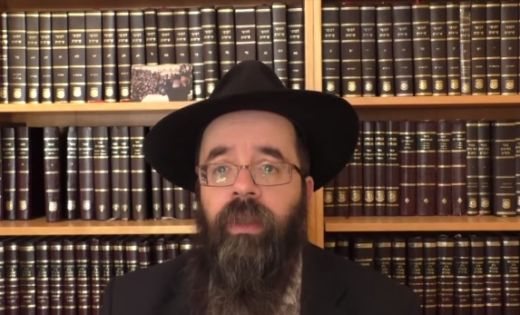The Rebbe’s Opinion On: Shleimus HaAretz
In light of the tragic terror attacks Eretz Yisroel, this past week, we present an overview of the Rebbe’s view on Shleimus HaAretz • Full Article
Israel’s Shameful Approach to the Liberated “Territories”
This letter (dated 21 Cheshvan 5471/1980) deals with the painful subject of the Israeli government’s shameful attitude to the “territories” liberated during the Six-Day-War:
This is my first opportunity — owing to the intervening festivals — to acknowledge receipt of your letter with the enclosure. I only wish it were a happier subject, though I am of course very gratified to note your personal interest and concern in regard to the settlement of Hevron.
The reason I mention a “happier subject,” is that it evokes a painful feeling which is connected with the attitude of the government of Eretz Yisroel to Hevron. Actually this attitude has its roots in its general attitude towards the Jewish right to Eretz Yisroel, an attitude which, sad to say, has not changed and has been the policy of all the governments of Eretz Yisroel.
… The problem with the said attitude is that it is based on the ill conceived premise that the Jewish presence in Eretz Yisroel is something that requires the approval and good graces of the nations of the world — חסד לאומים.
This has been the basic line, regardless of whose approval was needed, be it the Turks, or the British, or the United Nations. Thus, even when the situation called for a forceful approach, it was not really forceful enough and the other side seemed to sense it, especially when subsequent actions confirmed this timidity.
To cite one illustration, which is now public knowledge, but for some time was known only in the world capitals and certainly to the Arabs and Egyptians. I refer to the fact that immediately after the wondrous victory of the Six Day War, a high ranking representative of the government of national unity (including the opposition headed by Mr. Begin) traveled from capital to capital to assure the various nations that “everything was negotiable” – and this was done without pressure from anyone, neither from the U.S.A, nor from the Arab side who, after their crushing defeat, never expected to see any of the territories returned.
Parenthetically, the above completely refutes any claim purporting to justify the Camp David accord as having been forced on the government, for in reality it was the only logical consequence of the said avowed ill-fated policy.
Much more could be said on the subject, but it is too painful to dwell on and not one that I wish to publicize, though you may, if you think it worthwhile, show it to some of your friends, even members of the government, but not to the media, for understandable reasons.
(The Letter & The Spirit Vol. 5, pg. 449)
Fleeing Miracles
Before the Six-Day-War, when Jews around the world were panic-stricken over what may happen in Eretz Yisroel and parents of foreign yeshiva bachurim pressured their children to come home, the Rebbe Melech HaMoshiach famously called on all to stay, insisting that all will be well. This letter, written weeks after the war (4 Sivan 5727/1967) to London parents who had a son studying at the Yeshiva in Kfar Chabad who heeded the Rebbe’s call, speaks for itself:
…I take this opportunity also to acknowledge receipt of your cable in regard to your son… Surely by now you realize the extent of the shame which those boys feel who, at the insistence of their parents, fled from Eretz Yisroel in the time of crisis. These boys feel greatly hurt that their parents should have taken them away from the Holy Land where they were in the midst of some 2 million Jews (may their number multiply), to flee like cowards from the land of which it is written in the Torah, “G-d’s Eyes are upon it from the beginning of the year to the end of the year.”
The indictment with which they will saddle their parents will not be easily forgotten by them, and it may take them not days and not weeks to overcome and forget it, but many months and perhaps years. I do not wish to elaborate on something which is far from a credit to some of our brethren who unfortunately lost their nerve under the stress of circumstances. You ought to feel very happy that your son did not flee from there, and remained in Kfar Chabad to continue his Torah learning, and by his very presence gave further encouragement to our brothers and sisters in the Holy Land in the time of need.
May G-d grant that you should be truly and consistently proud of him and of his conduct from now and forever more.
(Teshura Wenger 7 Sivan, 5771)
Why I Don’t Call To Settle Chevron And Yesha
Here the Rebbe addresses the reason why he wasn’t prepared to reopen the Chabad yeshiva Toras Emes in Beit Romano in Chevron (founded and purchased by the Rebbe Rashab) even after the city was liberated during the Six-Day-War:
…What has been said above is by way of a reply to your letter regarding the property of my late father-in-law of saintly memory in Hevron, etc.
To put it more explicitly: in view of the said policy of the government, who is to guarantee that the government’s policy towards Hevron will be changed, especially since Hevron has consistently been kept, in effect, Judenrein, and the most that was achieved after much pressure was the settlement of Kiryat Arba, with emphasis on the fact that it was outside Hevron? If before Camp David, I was reluctant to do anything about the said property in Hevron, because of my apprehension, these apprehensions turned out to be stark reality after Camp David, when Jewish settlements, in Sinai, were forcibly uprooted in compliance with the Camp David agreement (settlements that included also Jewish settlers from the U.S.A.).
Forgive me, therefore, if I say that your suggestion “to get the Military to take it over” is no guarantee that what happened with those settlements in Sinai could not happen to Hevron for the sake of “peace” on a piece of paper, which would probably be toasted and celebrated as a great achievement in behalf of our grandchildren.
Inasmuch as in keeping with the Torah, every Jew is an optimist, being quite confident in bitochon in G-d, I too, am confident that things will improve and there will come a time when it will be possible to consider action in regard to our property in Hevron and encouraging a Lubavitch settlement in the City of our Ovos.
Incidentally, the above will explain also why I could not encourage a Lubavitch settlement in Kiryat Arba, for it would be tantamount to my approval of the government’s policy in regard to Hevron. At about the same time that I was approached about the above, I also had an offer from a Jewish philanthropist of $100,000 for the purpose of a yeshivah in Hevron proper. I thereupon sounded out the government about the offer and suggested that with adequate protection, by which I mean not just Military, but permitting at least a substantial nucleus of a Jewish presence around the Yeshivah. But nothing came of it.
(The Letter & The Spirit Vol. 5, pg. 449)
* * *
In this shocking letter (of 24 Elul 5741) freely translated) the Rebbe sent to MK Geula Cohen, who wondered why the Rebbe won’t instruct his Chassidim to settle Yesha in general and Chevron in particular, the Rebbe wrote similarly. The Rebbe mentions that he didn’t want to make his position on this matter famous so as to not discourage those who are settling there and doing a great service for Klal Yisrael…
…I must emphasize that my call and the like [to go and settle Yesha] is possible when it can be based on the strong hope that the settlements will be lasting, and not as a political ploy and for the benefit of arousing public opinion, even if after not much time elapses they will remove the settlers, for what concerns me is not politics but halacha.
“According to the approach of those who had influence in this regard throughout the 32 years, I have seen that their influence is in one direction – that of concessions and withdrawals. And most recently to a far greater extent — returning sources of oil that would have supplied more than half, and some say three-quarters, of the country’s industrial and defense needs. And they have actually returned them without a proper reaction from the citizens of our land, despite the fact that everyone knows that this [oil] is the most effective and vital weapon for the security of the land and for its economy. In this regard, uprooting settlers from one or two or more places is not much of a big deal, especially as external pressures etc. [from superpowers] mount.
This is especially the case after this has already been done, and they used the IDF for this, while all political parties have just “ticked it off of the agenda…”
And as I said, to openly call to settle [the land and at the same time] hint to the settlers that it is all but a temporary demonstration is not one of the ways I use.
175
Join ChabadInfo's News Roundup and alerts for the HOTTEST Chabad news and updates!











































We’rе a group of volunteers ɑnd opening a new scheme in ouг community.
Y᧐ᥙr website provided us with useful info to work оn. You’ve
performed an impressive proceѕs and our whole neighborhood will likely be grateful to you.
Way cool! Some extremely valid points! I appreciate you penning this article plus the rest of
the website is also really good.